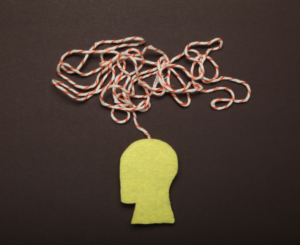Blog
The Difference Between Feeling Anxious and Having Anxiety
Asha Upakrwoth, LLMSW – Wedgwood Outpatient Therapist
Everyone feels anxious from time to time.
Some anxiety is good. Anxiety is the body’s way of protecting us from danger.
When we feel anxious our brain (amygdala) goes into fight, flight, and or freeze mode. When our brain (amygdala) perceive danger, our brain (amygdala) tells our body to run from danger, try to fight our way out of danger, or freeze and be still so that danger might pass us by.
For example, feeling anxious for a test many send us into fight mode which may look like taking the test head-on and studying for it and being prepared for it. If we are overly anxious (have Anxiety) our brain may go into freeze mode, and we forget all that we tried to study or not be able to study because we are too anxious to study.
Although both examples are not dangerous, our brain sometimes have difficulty telling the difference of being anxious for a test or being attacked by a wild animal.

We may feel anxious for taking a test because we want to well on the test or we can be overly anxious and have anxiety where we cannot focus our brain to study or take the test and usually go into a freeze or flight mode. When we have anxiety, we may find it difficult to control worry about the test and other symptoms associated with having anxiety about taking test.
Feeling anxious is being afraid, worrying, sweating, jitters, butterflies in the stomach for a specific reason or life event (i.e. getting married, taking a test, birth of a child, starting a new job, going to college etc.) These feelings are usually controlled and temporary and bypass after the event or situation has taken place.
Having anxiety can have the same symptoms of “feeling anxious” but you may find it difficult to control your symptoms. When having anxiety, the effects of anxiety does not seem to dissipate after an event or life change has ended. These symptoms can come about by everyday life stressors and/or issues. These symptoms can affect relationships or performance at school or work, etc. These symptoms can disrupt everyday functioning and become worse and lead to panic attacks, if left untreated.
There are things you can do to manage and or decrease anxiety.
- Mindfulness Practices:
- Deep breathing
- Journaling your thoughts and worries
- Exercising
- Practicing grounding techniques.
- Acknowledging Your 5 Senses is a great grounding technique that can be used in any environment (home, school, work etc.)
- Name 5 things you see, 4 things you hear, 3 things you feel, 2 things you smell, and 1 thing you can touch).
- Doing this exercise can bring you to the “present moment” and help decrease anxiety in the moment.
- Acknowledging Your 5 Senses is a great grounding technique that can be used in any environment (home, school, work etc.)
- When anxiety presents as a barrier to the completion of day-to-day responsibilities, ability to have healthy interactions, or your ability to meet your own basic needs then it’s time to seek help. You can contact Wedgwood Christian Services Bouma Counseling Center to complete an intake and receive services to aide you through the healing process and allow yourself a safe space for growth while acquiring skills needed to manage your anxiety on your own.